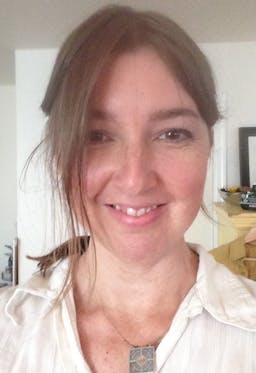SHORT STORY: Arm in Arm
Apr 28, 2022
Story
Arm in arm my girlfriends and I walked that day. Caribbean-Asian, Anglo-Saxon, Indian-American, we were all together beautiful: a triangular sampling of America’s patchwork heritage and the rich cultural diversity of the Bronx where we lived. It was a crisp winter morning. The kind where the sun glistens across the snow and ice, and the salt - put down to melt it - crunches underfoot. Our breath was visible and our bodies warmer for holding each other close by. We were headed to our regular table at the coffee house on the corner. Hurriedly at first, to escape the bitterness in the air, until the friend on my left arm began to speak.
“I don’t know if I should let my daughter take her father’s name.” She said. Her eyes faced straight ahead.
“Oh?” We slowed our pace.
“It’s a slave name. I don’t want my daughter to carry such a weight with her name.”
I recognized the name she gave immediately. It was the name of an English town I had known from home. I felt uneasy. I had never been taught about slavery but I knew enough to suspect this name had been given by one of my fellow countrymen, perhaps even one of my own forefathers. Certainly the name had come to my friends’ family from someone English, who had paved his new life in this country on the backs of his slaves. I was a new immigrant from England myself. I felt sick.
“What should I do?” My friend asked.
I couldn’t speak.
“Turn it around.” The friend hugging my right arm said to her, “ Her father’s name is part of who she is. Give it to her and turn it around. Turn it into something positive.”
“Yes.” She tossed her winding Caribbean hair over her shoulder with indomitable grace. “It’s nothing to be ashamed of.”
I watched them smile at each other with amazement.
“The reason I say that,” the friend on my right continued, “is because our name carries weight too.” She straightened her back as she told us her story. Her father, a Hindu Indian had once lived in a small town near Islamabad. After the British Partition of India and Pakistan, her family made it to a refugee camp on the Pakistani side of the newly created border. “One day, while they were in the camp, they heard stories that trains were coming to take them to safety in India. The same day, a train slowed down on the tracks nearby. The people ran towards it, but there were Pakistani soldiers in the carriages. They started to shoot.”
Her words hit my heart.
“My father had been playing with his brothers in the field when this happened. A cow walked in front of them as the shots were fired. The bullets hit the cow instead of them. The cow saved their lives.”
We were silent then, for a moment or two, except for the sound of our feet on the cracks in the ice.
“I am proud of my history, of my father’s survival. Without it he wouldn’t have been him, he wouldn’t have come to America, he wouldn’t have met my mother and he wouldn’t have had me. His story is my story now and I won’t let it be a burden to my children or to me. Our names, our histories, they are who we are, but we must not let the weight of them shape us.”
She touched her heart and her eyes danced into freedom.
I tried to smile, but I could not.
I wondered why I had never been taught about the British Partition of India, their involvement in slavery or their conquest and colonization of nations. I wondered about all the well-intentioned thin lines the English had drawn across the world to separate quarreling foes. Had this naïve and intrusive policy of segregation ever worked to foster peace?
It felt as if the actions of my country had been my fathers, and the nations he had divided my brothers and sisters. For too long he had controlled with conquest and oppression as if he had attempted to teach with a firm hand. But these nations are not children that had ever needed a father’s guidance or direction. They are his forefathers, his friends, his cousins, his brothers and sisters.
The sadness once enveloping my friends that cold wintry morning, cocooned me in shame, as they were set free. This tiny little Island that I had come from, with aspirations as wide as the Universe had carved their wrongdoing into generations and generations of families.
I withdrew my arms from theirs and watched the ice melt in rivers around my feet.
“I’m sorry.” I said.
A Blue jay landed on a branch overhead. It cocked its head as if to listen.
“Why are you sorry?” My friends asked.
“I am here, English, stood between you, listening to your stories, and I can’t believe my country did this to you. I am so sorry for that. I am so sorry for being English.”
To my surprise they both laughed and embraced me.
“You’re so funny!” one of them said.
“I love you,” the other one said.
The Blue jay sang.
And laughing and smiling and holding each other, we continued to walk, arm in arm.




